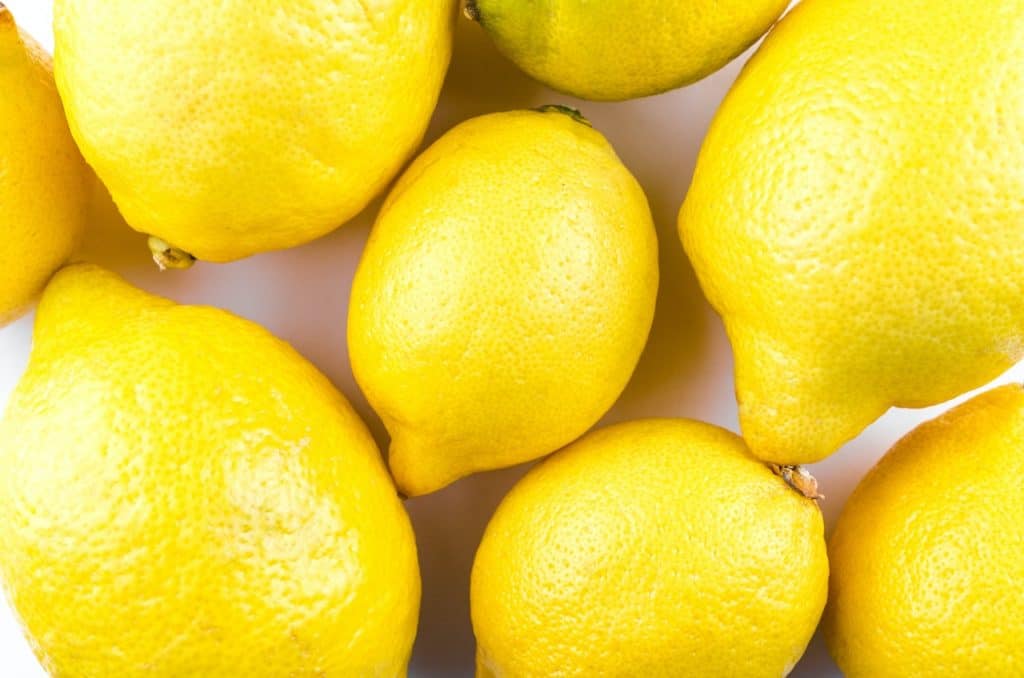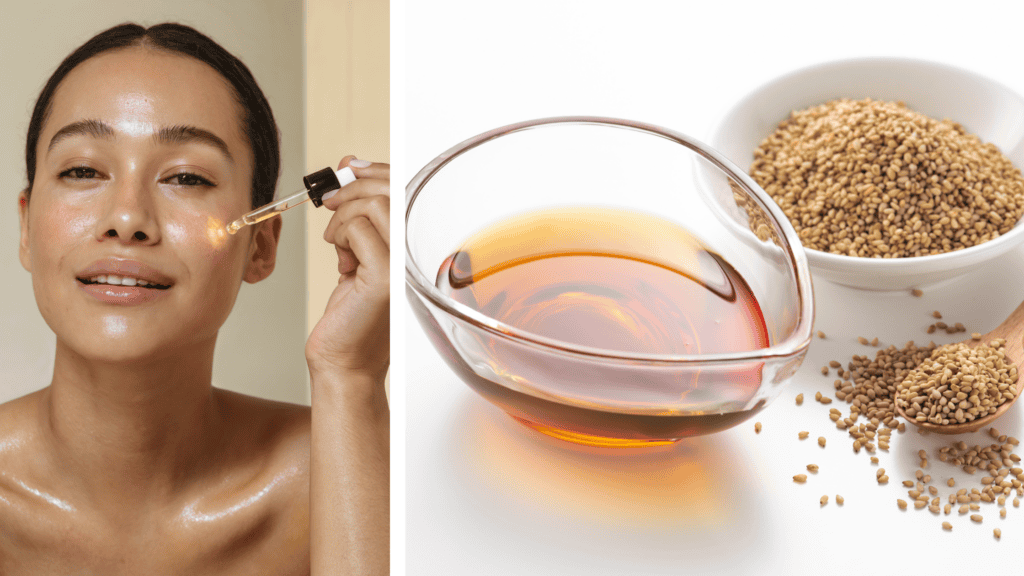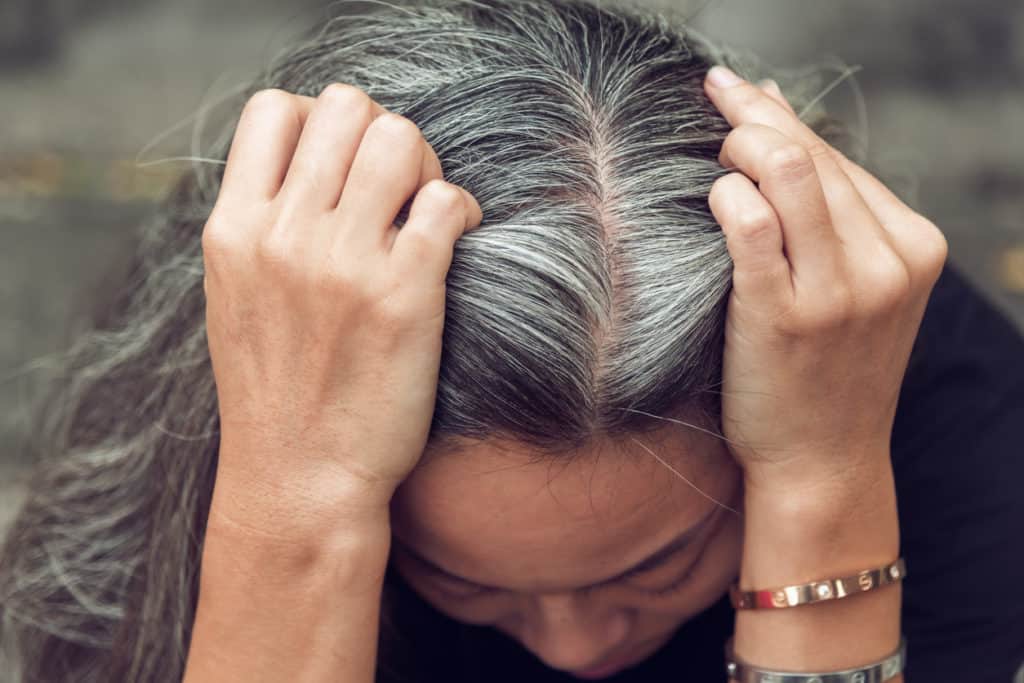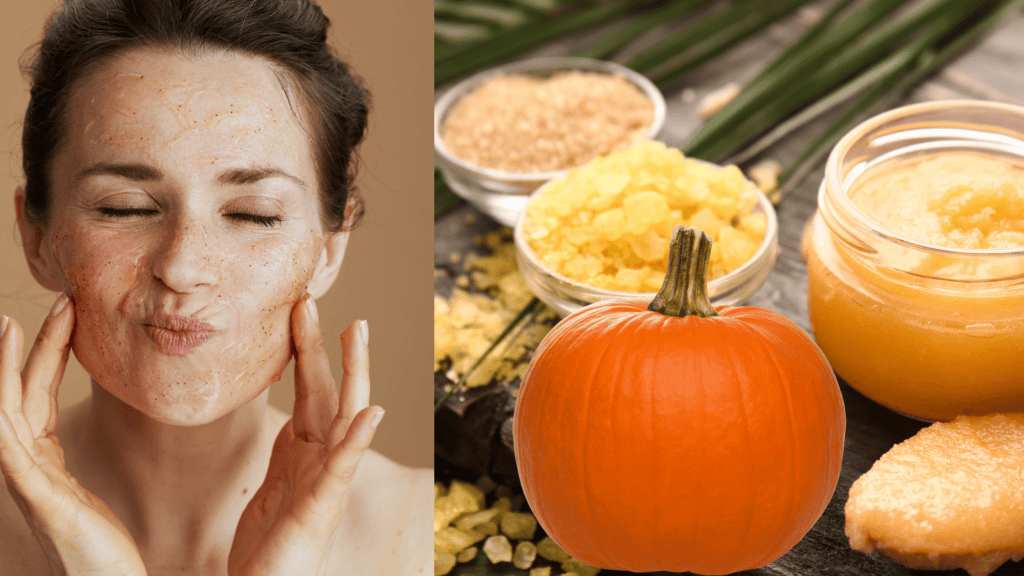You may want to try lemon juice for an all-natural way to improve your skin complexion and achieve a youthful, glowing, and brighter appearance! Lemon juice can help to brighten your skin, reduce wrinkles, and even improve acne.
Lemons are rich in vitamins and minerals, including vitamin C, calcium, magnesium, and potassium, and can give you visible results for a clear and radiant complexion!
Why Lemon Juice Is Good For The Skin!
Lemon juice is good for the skin because it is a natural astringent. This means that it can help to tighten pores and remove excess oil. It can also help to brighten the skin and even out the skin tone. Lemon juice is also a natural bleaching agent, so it can help to lighten dark spots on the skin.
Lemon juice is a good choice for those with oily skin, as it can help to control sebum production. It can also help to exfoliate the skin and remove dead skin cells. Lemon juice is also a good choice for people with acne, as it can help to reduce inflammation and kill bacteria.
To use lemon juice on the skin, apply it to a cotton ball or reusable pad and wipe it over the face. You can mix lemon juice with honey and use it as a face mask for a more intensive treatment. Add a few drops of lemon juice to your facial cleanser or homemade toner.
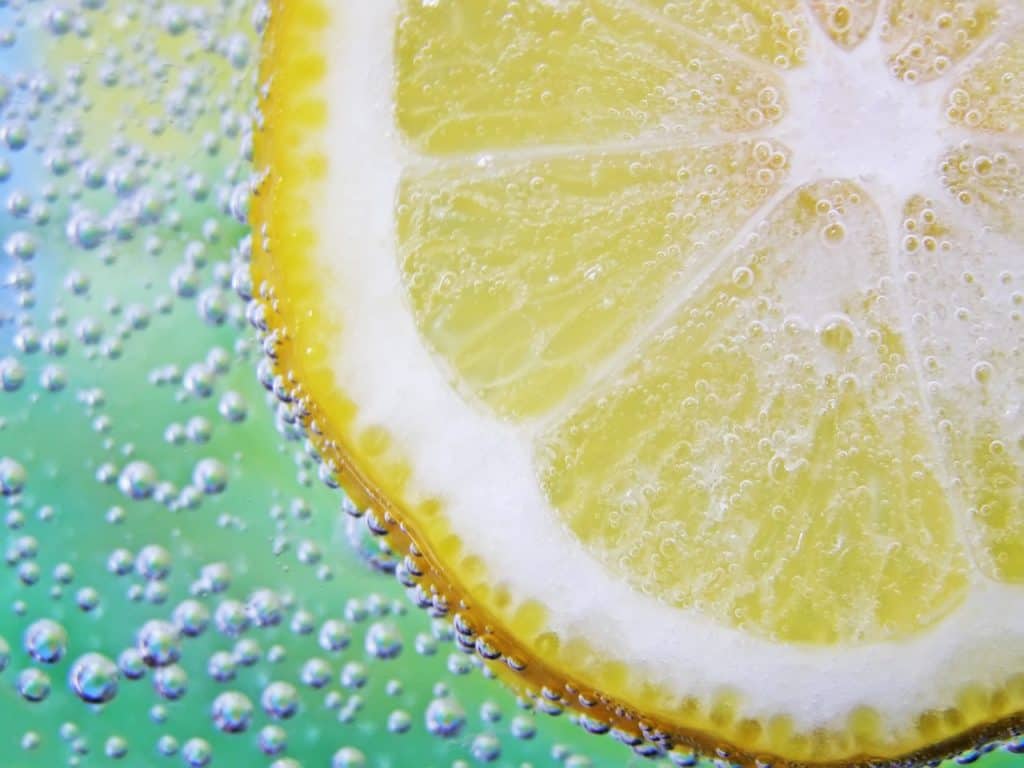
The Best Ways To Use Lemon Juice For The Skin.
Lemon juice is a great natural way to help with skincare concerns. Wear a natural sunscreen afterward, as lemon juice can make your skin more sensitive to the sun.
Read on to discover the benefits of using Lemon juice for;
- Fine lines and wrinkles.
- Acne
- Age Spots
- Eczema
- Psoriasis
- Sunburn
- Cold sores
- Scars
- Dandruff
Fine Lines And Wrinkles.
Lemon juice has many benefits for the skin; it is rich in Vitamin C and very beneficial for reducing lines and wrinkles. Lemon juice works by increasing collagen production and improving skin elasticity. Lemon juice is so effective at reducing wrinkles that it is often used in anti-aging products.
To help reduce wrinkles, mix lemon juice with some raw honey and apply it to your face. Let it sit for about 30 minutes before rinsing it off.
If you have sensitive skin, you may want to dilute the lemon juice with water before applying it. You can also add a few drops of lemon essential oil to the lemon juice to boost skin-loving benefits.
Add lemon juice to your favorite moisturizer or cleanser and apply it to the skin. Avoid using lemon juice on the skin around the eyes, as this can irritate.
Lemon Juice And Acne.
Lemon juice is a natural antiseptic, astringent, and disinfectant. It has also been known to help treat acne. The citric acid in lemon juice helps to dry out pimples and remove dead skin cells. Lemon juice also helps restore the skin’s pH balance, which can help reduce the appearance of acne.
A study published in the journal Dermatology Research and Practice found that lemon juice effectively reduced the size of sebaceous glands in people with acne.
Another study found that lemon juice can help reduce acne-causing bacteria on the skin. Lemon juice is also thought to have anti-inflammatory and antibacterial properties, which may help to reduce the redness and swelling associated with acne.
In Tanzania, lemon juice is mixed with egg white, honey, and cucumber and applied to the skin every day at night to smooth the facial skin and treat acne.
To help remove acne, mix lemon juice with some water and apply it to your face with a cotton ball. Let it sit for about 15 minutes before rinsing it off.
If you have sensitive skin, you may want to dilute the lemon juice with water. Or try using lemon-infused olive oil! Mix lemon juice with raw honey and olive oil to create a mask.
Lemon Juice For Age Spots.
Age spots, also known as sun spots, are caused by the overproduction of melanin in certain areas of the skin. They are usually harmless but can be unsightly and can make you look older than you are.
Lemon juice can help fade age spots by inhibiting melanin production. Its high acidic content acts as a natural bleaching agent, which can help to lighten the skin.
To help fade age spots, mix lemon juice with a natural baking soda and apply it to the affected area. Let it sit for about 15 minutes before rinsing it off.
Repeat this process once or twice a week until the spots have faded.
Lemon Juice And Eczema.
Lemon juice is a natural remedy for eczema that can soothe the skin and reduce inflammation. The acidic nature of lemon juice helps to exfoliate the skin, removing dead skin cells and revealing new, healthy skin.
Lemon juice also has antiseptic and antibacterial properties, which can help to prevent infection.
To use lemon juice as a natural remedy for eczema, add a few drops to a cup of warm water and soak a clean cloth in the mixture. Apply the material to the affected area for 10-15 minutes. Repeat this process several times a day until eczema clears.
You can also try mixing lemon juice with a natural oil such as coconut or olive oil to create a soothing, moisturizing treatment to help with eczema and apply it to the affected area. Let it sit for about 30 minutes before rinsing it off.
Lemon Juice For Psoriasis.
Psoriasis is a chronic condition that causes scaly, itchy patches on the skin. It is thought to be caused by an overactive immune system. Lemon juice may help to reduce the inflammation associated with psoriasis.
The acidic nature of lemon juice can also help to remove dead skin cells, which can reduce the symptoms of psoriasis. Lemon juice may also help to moisturize the skin and promote healing.
To use lemon juice for psoriasis, mix equal parts water, apple cider vinegar, and lemon juice to the affected area and leave on the skin for 10-15 minutes before rinsing off. You can add the juice of half a lemon to a bath. You can also drink lemon juice mixed with water or honey. If you use lemon juice for psoriasis, start with a small amount to see how your skin reacts.
You may also want to talk to your doctor before using home remedies, as they may interact with your other medications.
Lemon Juice And Sun Burn.
Lemon juice is a natural remedy for sunburn. The acidity in lemon juice helps to break down the dead skin cells that can cause sunburn. Lemon juice also has anti-inflammatory and antibacterial properties that can help to soothe the skin and prevent infection.
Using lemon juice for sunburn, mix equal parts of Aloe Vera and lemon juice and apply to the affected area with a cotton ball or cloth. Rinse off after 15 minutes. Add a few drops of lemon juice to a cup of cool water and use it as a compress.
Make Aloe Vera face masks, and squeeze the lemon juice into them!
If the lemon juice is too drying, mix it with raw honey, which is fantastic for face masks, and coconut oil, which has excellent skincare benefits, before applying it to your skin.
Lemon Juice For Cold Sores.
There are many different home remedies for cold sores. But one that seems to stand out above the rest is lemon juice. Lemon juice has a lot of benefits when it comes to cold sores. For one, it has a high acidic content. This means it can help kill off the virus that causes cold sores.
Another benefit of lemon juice is that it can help to dry out the sore. This is important because it can help to prevent the sore from getting infected. Lastly, lemon juice can also help to reduce the swelling and redness associated with cold sores. This is because lemon juice is a natural anti-inflammatory.
To help treat cold sores, mix lemon juice with honey and coconut oil and apply it to the affected area. Let it sit for about 15 minutes before rinsing it off.
Lemon Juice For Scars.
Lemon juice is a natural astringent used to lighten scars. It can also help to fade existing scars. Using lemon juice on spots, apply it to the fault with a cotton ball or Q-tip. Allow it to dry, and then rinse it off. Repeat this process daily until you see results.
Lemon juice has also been shown to be effective in treating acne scars. To use lemon juice on acne scars, mix lemon juice and water in equal parts. Apply it to the wounds with a cotton ball or Q-tip. Allow it to dry, and then rinse it off. Repeat this process daily until you see results.
Lemon juice can also be used to treat stretch marks. Mix equal parts lemon juice and olive oil, plus a few drops of vitamin E oil. Apply it to the stretch marks with a cotton ball or Q-tip. Allow it to dry, leave for up to 15 minutes, and then rinse it. Repeat this process daily until you see results.
Lemon Juice For Dandruff.
One simple and effective home remedy for dandruff is lemon juice. Lemon juice has antifungal and antibacterial properties that can help to fight the fungus that causes dandruff. It can also help to balance the scalp’s pH, reducing irritation and dryness.
Juice from freshly squeezed lemons and olive oil is a natural remedy for treating hair and scalp disorders in the West Bank of Palestine [78].
To use lemon juice for dandruff, mix lemon juice and water in equal parts. Apply the mixture to the scalp and massage it for a few minutes. Leave it on for about 15 minutes before rinsing it off.
For best results, use this remedy two or three times a week. You should see a noticeable improvement within a few weeks.
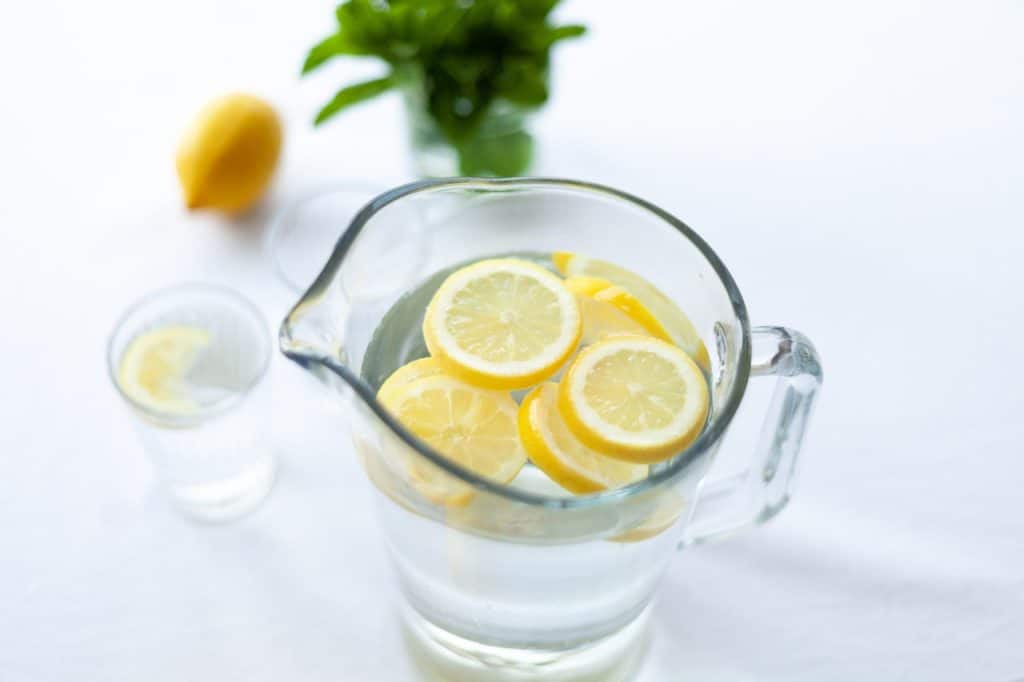
Is Lemon Juice To Drying For The Skin?
Many people wonder if lemon juice is too drying for the skin. While Lemon juice is a popular ingredient in skincare products, there is still a concern that it will cause dryness to the skin.
Lemon juice is acidic, making it seem like it would dry the skin. However, lemon juice also contains citric acid, a natural alpha hydroxy acid (AHA). This means it can help improve the skin’s appearance by reducing and brightening wrinkles. Lemon juice is also a good source of vitamin C, an essential nutrient for the skin. Vitamin C helps to protect the skin from damage caused by the sun and pollution.
So, while lemon juice may seem too dry to the skin, it has many benefits that make it a good choice for skincare.
Still have concerns? Use lemon juice in moderation and follow up with a great natural moisturizer. You may want to consult a dermatologist first and avoid using lemon juice if you have dehydrated skin.
If you have oily skin, use it occasionally to help control breakouts. Just be sure to moisturize afterward with natural oils that are beneficial to the skin to keep your skin healthy and hydrated.
Avoid direct sun exposure if you use lemon juice on your skin for 24 hours, and always apply a natural mineral sunscreen to protect your skin.
While it is true that lemon juice can be drying, it is also a simple ingredient that can improve your complexion. Lemons are a great source of Vitamin C, essential for collagen production, and have natural bleaching and antibacterial properties. So, if you’re looking for a natural way to brighten your skin and fight acne, try lemon juice, and look out for this ingredient in lemon-infused clean beauty products!
This post contains affiliate links. If you purchase through these links, we may earn a small commission, which will not affect your sales!
Glowitgreen.com is a member of the Amazon affiliate program.

